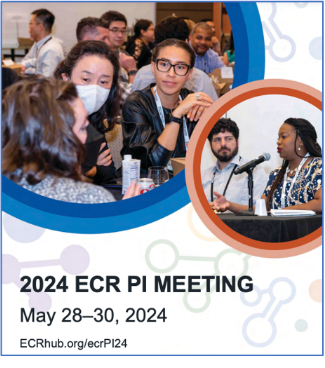2024 ECR PI Meeting
2024 ECR PI Meeting
Fostering Networking and Insights Across Disciplines
Welcome to this opportunity to connect with fellow EDU Core Research (ECR) principal investigators (PIs) and NSF program officers, including for the ECR:Core and ECR:BCSER programs!
The 2024 ECR PI Meeting aims to:
- Foster relationship building (a) across disciplinary silos but (b) united by shared interests in common topics in STEM education research.
- Spur new ideas for future research that build on these conversations and insights from others’ ECR projects.
- Advance the career development goals of early-career PIs, PIs of capacity-building projects, and PIs at historically underfunded institutions.
Meeting Program and Details
Image

The meeting program (PDF) details the following:
- Response to Community Input
- Meeting Structure and Agenda
- Informal Socializing and Formal Networking
- Keynote and Breakout Sessions
Additional links:
- Brief agenda view (PDF; 2 pages)
- Whova app for access on your smartphone
- Registration page for other logistical details
- Online agenda with add-to-calendar (see below)
Online Agenda
Loading...



